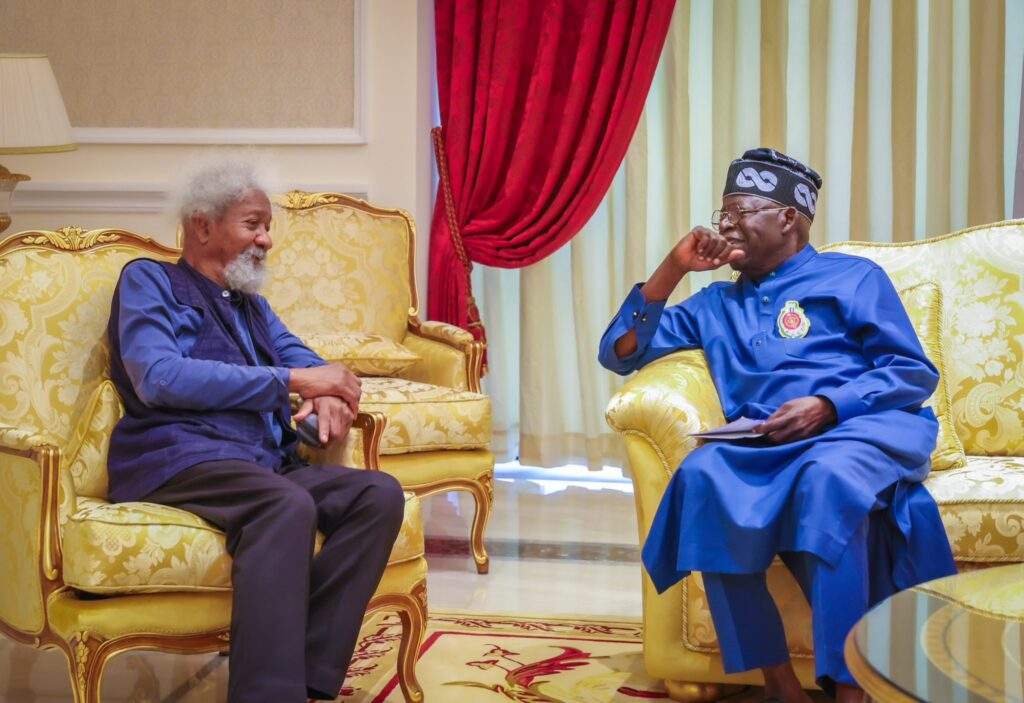Nobel Laureate and Nigerian elder statesman, Prof Wole Soyinka, made headlines as he revealed his stance on refraining from critiquing President Bola Tinubu’s administration until one year into his tenure, in May 2024. This announcement was made during a courtesy visit to Tinubu, who was on holiday in Lagos.
Soyinka expressed his personal policy of withholding judgment, citing the need for the President to have ample time to address the challenges and “make up” for any setbacks. In his own words, Soyinka stated, “Well, you know, something you may have noticed about me is that most heads of state, when they take office, I always leave them alone for about the first year…Because they need time.”
The renowned playwright further elaborated, “I know when they come in, they don’t start from ground zero. They often start even lower than ground zero and they have to make up. So, I’m adopting the same principle this time. When you see me next year, ask the same question again and listen to my answer.”
Soyinka’s decision to withhold criticisms until 2024 has sparked intrigue and speculation, adding an intriguing layer to the unfolding narrative of Tinubu’s presidency. This thoughtful approach from a revered figure has generated widespread interest and anticipation for the future evaluation of the administration’s performance.
As the global community closely monitors political developments in Africa’s largest democracy, Soyinka’s measured approach serves as a poignant reflection of the complexities and nuances surrounding leadership assessments. The influential voice of the Nobel Laureate resonates beyond national borders, drawing attention to the significance of allowing leaders a grace period to navigate the daunting challenges of governance.
With his remarks capturing international attention, Soyinka’s deliberate stance illuminates the intersection of governance, public expectation, and the responsibility of prominent figures in shaping the discourse. As the world awaits the unfolding of events, the profound impact of Soyinka’s decision reverberates, underscoring the delicate balance between critique and patience in appraising leadership within a global context.
